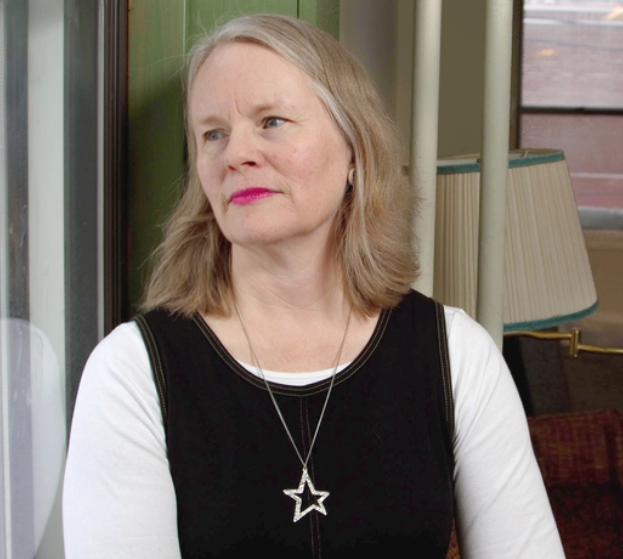Posted May 8, 2024
The Interview – Beverley Cooper on Censorship
Beverley Cooper
Beverley Cooper is a writer, teacher, and actor. Her plays include: Clue in the Fast Lane (with Ann-Marie MacDonald); Thin Ice (with Banuta Rubess, Chalmers/Dora Award); The Eyes of Heaven; The Woman in White (from the novel by Wilkie Collins); The Lonely Diner: Al Capone in Euphemia Township; Janet Wilson Meets the Queen (nominated for Prix Rideau Award), If Truth Be Told and The Other: A Strange Christmas Tale. Innocence Lost: A Play about Steven Truscott was a finalist for a Governor General’s Literary Award and was on the Globe and Mail bestsellers list, a first for a Canadian playwright. She has also written for television, film, and extensively for CBC Radio Drama. Learn more about Beverley’s work at www.BeverleyCooper.com
Bev, this month for our Essential Reading title we are featuring If Truth Be Told, which deals with censorship in the 1970s. Over the past five years, it’s estimated that book challenges in North American schools have nearly doubled. How does the way these debates are occurring differ from the censorship fights of the 1970s?
I think what is different, especially in the States, is how political it’s become. Conservative groups like “Moms for Liberty” are becoming organized, well-funded and powerful. The rhetoric is shrill and nasty. Librarians are being threatened! I think in Canada, occasionally there is a desire to do the right thing, librarians and teachers can be intimidated by a parent who speaks loudly. For instance, a couple of years ago the Durham District School Board temporarily pulled Indigenous writer David A. Robertson’s wonderful YA book, The Great Bear, because of concerns raised by some Indigenous families. As far as I know David never even heard what their complaints were. The Great Bear is part of a terrific series of books that explores tough topics in really creative way. I think everyone should read them. But censorship can also be political in Canada. It’s the Alberta government that has put David’s book Betty: The Helen Betty Osborne Story on the “not recommended” list.
Recent US challenges primarily involve opposition to books that deal with sexuality, LGBTQ+ themes, or gender diversity, along with books that include magic. Many of the books targeted in Canada in recent years feature similar content, but they also include Atwood’s The Handmaid’s Tale, the coming-of-age graphic novel This One Summer by Mariko Tamaki, and Betty, which of course deals with Missing and Murdered Indigenous Women. (These Canadian books have all won major awards and deal with a variety of subjects.) Why are these the kind of books that get challenged?
I always think that censorship says more about the people that fight for it than the books that are being banned. The nay-sayers often frame censorship as protecting children from what they see as inappropriate material. When I was writing If Truth be Told, I was trying to understand their point of view and found that some concerns can come from well-meaning, though misguided, parents. As a parent, I know that our desire to protect our children can bring out the best and the worst of human nature. Some of these book-banners are clearly racist, homophobic/transphobic and hateful, while others just don’t want to imagine their own children thinking about sex or using “foul language.” But of course, most kids, once they enter their teenage years, are thinking a lot about sex; they’ve heard all that language and more. They are exploring their identities and their place in the world, and what better way to do that than through great literature? It’s almost always the great writers that are being targeted. Judy Blume, for goodness sakes!
A while back, Banuta Rubess and I wrote a play called Thin Ice about date rape, sexual cohesion and consent. Parents and school boards were up in arms. How dare you bring a play into our children’s schools that deals with sex?! But more often we heard that the play provoked very positive conversations. What we learned is that the school and the teachers need to be supported with the tools to be able to facilitate those conversations.
What was the real-life inspiration behind If Truth Be Told? And can you tell us about why you decided to write it?
If Truth Be Told was written as a fictional response to cases of censorship in the late 1970s, when Christian groups and concerned parents attempted to ban books by Alice Munro (Lives of Girls and Women) and Margaret Laurence (The Diviners) from being taught in Ontario high schools. Even though the play is set in the 1970s I wanted it have a contemporary feel, so while I was writing it, I was watching, very closely, the debate over the Ontario sex ed curriculum. I was also looking at more current cases of book banning, particularly a prize-winning YA book about racism and bullying that was being banned in New Zealand. And I was influenced by our still very present polarizing debates between those on the Right and those on the Left. The play is about the power of words, both spoken and written; how do we tell stories; how do we fight for what we believe in; how do we coexist when we have opposing views?
During the process of writing, how much research about the actual events did you have to do?
I did a lot of reading of newspaper and magazine articles from the time, there were a few CBC interviews; I read Robert Thacker’s terrific biography of Alice Munro, Writing Her Lives. I had the great fortune of connecting with the book editor Mary Adachi who was a close friend of Margaret Laurence and she kindly loaned me a box of articles and letters that were very helpful. She was also able to articulate the personal cost to writers when their books are banned. I was interested, dramatically, in exploring these writers’ personal relationships with censorship coming from the very communities they lived in. For all her success, Alice Munro had a fractious connection with her hometown of Wingham. Many folks did not like the way she wrote or what she wrote about. Margaret Laurence was so wounded by the animosity she felt that she was unable to write another novel. Both writers felt personally attacked by these attempts to censor their work (Munro called Laurence her FFP, “Famous Fellow Pornographer”).
Just a side note…I direct audiobooks for Penguin Random House and I happen to be working on The Diviners as I write this. I’m thunderstruck by the great writing. Truly. Knowing the controversy it caused, I’m noting how sexual the central character of Morag Gunn is. How beautifully and honestly the sex scenes are written. It is a great piece of literature and absolutely appropriate for older students.
Are there lessons from the 70s book challenges for people who believe in the freedom to read? How can we fight back against attempts at censorship?
I think we need to speak up. Especially if you hear about a book being banned within your own community. Write letters, advocate, your voice matters. Each February has a Freedom to Read Week, which is an annual event that encourages Canadians to think about and reaffirm their commitment to intellectual freedom. Their website has lots of information about how to get involved. Check it out!
-
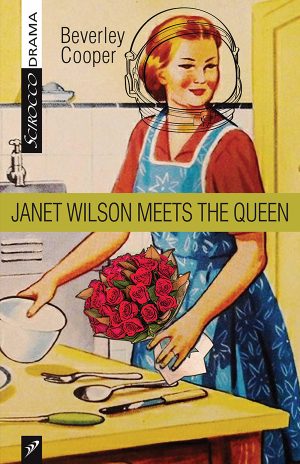 Janet Wilson Meets the Queen$9.99 – $15.95
Janet Wilson Meets the Queen$9.99 – $15.95 -
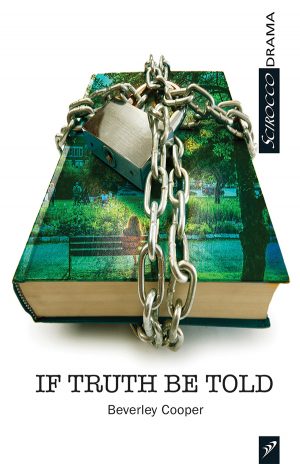 If Truth Be Told$9.99 – $15.95
If Truth Be Told$9.99 – $15.95 -
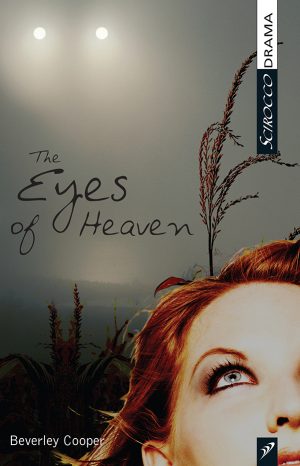 The Eyes of Heaven$9.99 – $14.95
The Eyes of Heaven$9.99 – $14.95 -
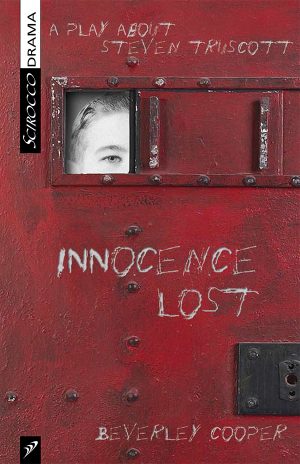 Innocence Lost: A Play about Steven Truscott$14.95
Innocence Lost: A Play about Steven Truscott$14.95 -
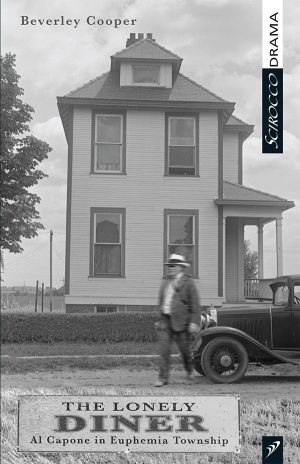 The Lonely Diner$15.95
The Lonely Diner$15.95

